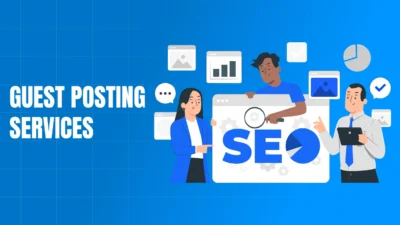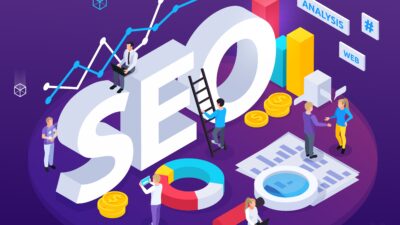Imagine a world where your doctor can predict illness before symptoms appear, where medical errors are drastically reduced, and where patients receive personalized treatment tailored to their genetic makeup. That future is no longer a distant vision—it’s being built right now, thanks to Artificial Intelligence (AI) and the software that powers it.
Healthcare has always been a data-rich industry, but until recently, it lacked the tools to fully leverage that data for better outcomes. Enter AI—a game-changer that’s redefining what healthcare software can do. From diagnostic tools and predictive analytics to virtual health assistants and robotic surgery systems, AI is pushing the boundaries of what’s possible in medicine.
According to a report by MarketsandMarkets, the global healthcare AI market is projected to grow from $14.6 billion in 2023 to $102.7 billion by 2028, at a compound annual growth rate (CAGR) of over 47.6%. This surge is not just about technology—it’s about saving lives, improving efficiency, and reducing the burden on overworked healthcare professionals.
In this blog, we’ll explore how AI is transforming healthcare software development across critical areas, and why this transformation demands innovation, accountability, and strategic investment.
1. AI-Powered Diagnostics and Medical Imaging
One of the most impressive uses of AI in healthcare is its ability to analyze medical images and identify diseases with remarkable accuracy.
Examples:
- AI algorithms can detect breast cancer in mammograms as accurately as experienced radiologists.
- Google Health’s AI model outperformed human ophthalmologists in diagnosing diabetic retinopathy.
- Aidoc and Zebra Medical Vision are examples of AI platforms that provide real-time analysis of CT scans and X-rays.
These tools are now integrated into healthcare software platforms, allowing clinicians to get second opinions instantly, make quicker decisions, and reduce diagnostic errors.
Benefits:
- Faster diagnosis
- Lower error rates
- Early detection of life-threatening conditions
2. Predictive Analytics and Preventive Care
Predicting patient outcomes before they happen is the holy grail of healthcare—and AI is bringing us closer to that goal.
By analyzing Electronic Health Records (EHR), genetic data, and even wearable device outputs, AI algorithms can:
- Identify patients at risk for chronic illnesses.
- Predict potential complications during treatment.
- Recommend lifestyle changes or interventions.
Real-world Use:
Mount Sinai’s AI model could predict the onset of sepsis 6 hours earlier than traditional methods—potentially saving thousands of lives annually.
Healthcare software development teams are now embedding these predictive models directly into EHR systems, giving doctors real-time alerts and actionable insights.
3. Virtual Health Assistants and Chatbots
AI-powered virtual assistants are revolutionizing patient engagement and administrative workflows.
These intelligent systems can:
- Schedule appointments.
- Provide medication reminders.
- Answer basic health questions.
- Pre-screen patients based on symptoms.
Apps like Ada Health and Babylon Health use conversational AI to guide users through symptom-checkers and help them decide on the next steps.
For software developers, this means creating scalable, multilingual, secure platforms that can integrate with multiple data sources while ensuring a human-like user experience.
4. Personalized Medicine and Genomic Analysis
The “one-size-fits-all” model in medicine is rapidly being replaced by personalized healthcare, where treatment is tailored to each patient’s genetic profile.
AI excels in analyzing complex genomic datasets to:
- Identify mutations and gene expressions.
- Suggest drug therapies based on genetic makeup.
- Predict how a patient will respond to treatment.
Software tools developed for genomic data processing require high-speed data ingestion, secure cloud architecture, and advanced machine learning pipelines—all areas where AI is deeply embedded in the development process.
5. Drug Discovery and Clinical Trials
AI is making drug development faster, cheaper, and more efficient.
Traditional drug discovery can take 10–15 years and cost billions. AI algorithms can now:
- Model how drugs interact with biological systems.
- Identify promising compounds in days instead of months.
- Predict side effects and toxicology profiles.
Startups like Atomwise and Insilico Medicine are already using AI to reduce the time and cost of clinical trials. Developers are creating platforms that manage vast datasets, simulate lab experiments, and track real-time trial data, ensuring compliance and scalability.
6. AI in Robotic Surgery and Medical Devices
AI-powered robotic systems like Da Vinci Surgical System are transforming operating rooms. These systems assist surgeons by:
- Enhancing precision during surgery.
- Minimizing invasiveness.
- Reducing recovery times.
Healthcare software development in this domain focuses on real-time data processing, high-precision motion control, and seamless integration with imaging technologies. AI ensures continuous improvement by learning from every surgery.
7. Streamlining Hospital Operations
Beyond clinical applications, AI is also being used to optimize administrative and operational tasks in healthcare facilities.
Applications include:
- Automating billing and insurance claims.
- Managing staff schedules.
- Forecasting inventory needs.
- Reducing patient wait times through intelligent triaging.
Healthcare ERP software powered by AI is making hospitals run more efficiently—saving both time and money
8. Data Privacy and Ethical Considerations
As AI systems process highly sensitive medical data, security and ethics become paramount.
AI software must comply with:
- HIPAA in the U.S.
- POPIA in South Africa
- GDPR in the EU
Healthcare software developers are now embedding privacy-by-design frameworks into their systems. This includes:
- Encrypted data storage
- User consent protocols
- Transparent data use policies
Moreover, developers must ensure their AI models are free from bias and deliver equitable healthcare outcomes.
Conclusion: Building a Smarter, Safer Healthcare Future
AI is not just a tool—it’s a transformative force redefining what healthcare software can achieve. From diagnosis to drug discovery, and from personalized treatment to hospital operations, AI is infusing intelligence into every corner of the healthcare ecosystem.
But innovation must go hand in hand with responsibility, transparency, and scalability. This is where software companies come in. By focusing on secure, flexible, and ethically aligned solutions, they can build platforms that empower doctors, enhance patient care, and reshape public health for generations.
For businesses looking to stay ahead in this rapidly evolving field, investing in custom software development services that specialize in AI-driven healthcare solutions isn’t just a competitive advantage—it’s a necessity.
FAQs
1. How is AI used in healthcare software?
AI is used in healthcare software for diagnostics, predictive analytics, drug discovery, virtual assistants, robotic surgery, and hospital management. It helps improve efficiency, accuracy, and patient outcomes.
2. Can AI replace doctors?
AI enhances—but does not replace—human doctors. It supports decision-making, improves diagnostics, and automates routine tasks, allowing healthcare professionals to focus on patient care.
3. What are the biggest challenges in developing AI healthcare software?
Major challenges include:
- Data privacy and compliance
- Algorithmic bias
- Integration with existing systems
- Gaining trust from clinicians and patients
4. Is AI in healthcare safe?
Yes, when developed and implemented correctly. Safety requires robust testing, data transparency, regulatory compliance, and human oversight to ensure AI decisions align with ethical and clinical standards.
5. Why choose custom software development services for AI healthcare solutions?
Custom software development allows healthcare organizations to build solutions tailored to their specific needs, integrate with legacy systems, ensure regulatory compliance, and innovate rapidly using AI-driven features.



